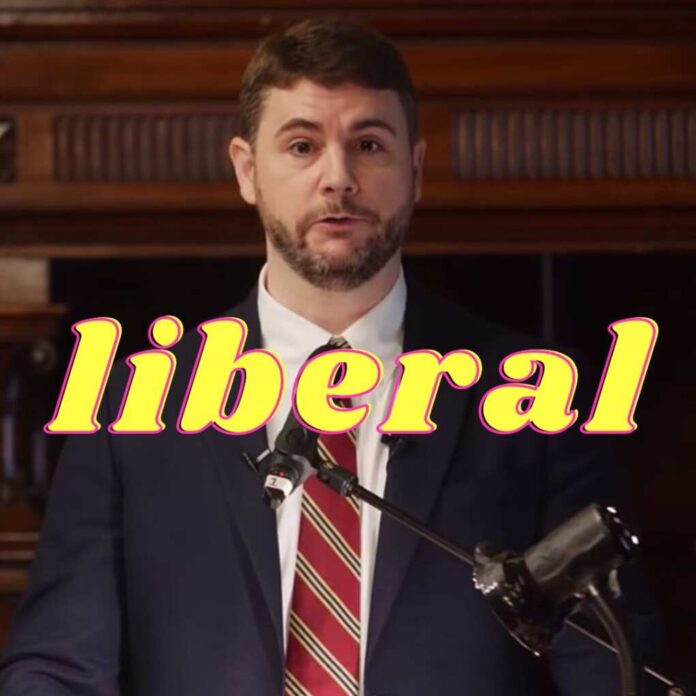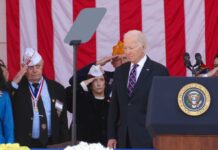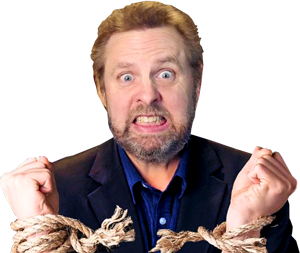
Dr. Steve discusses James Lindsay and the pitfalls of those in the “anti-woke” camp who fail to recognize the pitfalls of liberalism with TurleyTalks Staff Writer Conrad Franz!
- James Lindsay fails to understand the roots of wokeness
- He has no vision of post modernity outside of marxism/communism
- He will ultimately be left behind by the coming identitarian revival!
Conrad: Maybe you disagree, but I think someone like James Lindsay is ultimately proving himself to be a big problem because he’s basically admitted that he’s been mind poisoned and has no vision of post modernity outside of Marxism and communism.
Dr. Steve: Yeah that’s really interesting. Definitely. Based on some of his tweets that’s for sure.
Conrad: He wants to dogmatically protect this version of liberalism that he thinks is okay. He thinks that he’s found the line in the sand that’s arbitrarily okay, of course, in line with his preferences. But he sees what’s really coming, which is the Christian nationalist future, this revival, and he’s terrified of it, because it’s fundamentally anti liberal. Like it doesn’t have this, “we must preserve everyone’s human right to do whatever they want” presupposition. And that’s apparently a bigger perceived danger to him than the left.
Dr. Steve: Yeah, you got it. Yeah. He can’t think outside of those boxes. You know, in fairness, that’s what Alexander Dugan was trying to do with the fourth political theory is, how does Millerman put it, you know, he’s trying to create that space so as to be able to think outside of… there aren’t only three options, it’s not only liberalism, fascism or communism. There is a fourth option, and that of course is dasein and all this sort of stuff, but I think more broadly, it’s post secularism, its post globalism, its post modernity. It’s moving out of those frames of reference and Dugin, in fairness to his extraordinary thought, it’s allowing every culture to basically awaken its archaea, its core, its sacred. That’s very specific to where it is geographically and all this sort of stuff. We talk about land powers versus sea powers and all that, but cultural anthropologists would say that rituals, ultimately, are the interaction of populations with their specific ecological order to create a unique culture; and at the heart of every culture is a cult, which we call the sacred and every population has its own sacred. I’m going to be in Japan in a couple of days here, as a matter of fact, when this is posted I’ll already be in Japan and one of the things that I love most when I visit Japan is just sensing their own particular sense of the sacred. It’s so uniquely Japanese. And if they were to disappear off the planet, that sense of the sacred, that sense of the eternal, of the immortal, that would disappear with them. And that’s, to me, one of the great evils of liberalism. Liberalism basically tries to bury unique expressions of the sacred that you can’t get apart from those expressions.
Conrad: Thomas Jefferson expressed this in his private writings plenty but it’s important to read the public writings of the other authors of the Federalist Papers and others besides just Jefferson because Jefferson was one of the most hardcore Enlightenment thinkers of the founding fathers and people are able to, I think, miss what you just said, that idea and apply it to America with certain out of curated quotes or if they don’t read the full context of what our founding fathers actually thought about our nation. And like you said, in Japan if the Japanese people all left, and let’s say all Chinese people moved in Japan would be China, it wouldn’t be Japan at all. And if America becomes a land where all that’s left is the black urban core in the south, and then immigrants from the New World and South America, then that’s not the Anglo Saxon culture that created the United States. Even an Italian Antonin Scalia, discussed this openly.
Dr. Steve: The problem is…and Sam Huntington said the only way that would work is if we were fundamentally an ideology rather than an identity. Because as you move from modernity, to post modernity, you move from ideology to identity. Ideologies no longer have the sustaining power that we thought they had, rooted in scientific rationality. It’s why, again, the Ted Cruz comment, I found so laughable. I mean, that was an idealogue speaking. Lindsey Graham, when he opens his mouth, that’s an ideologue. But we are leaving the age of ideology, and we’re moving into the age of identity. And that’s where culture, custom tradition, ethnicity, and the like; religion in particular, all come back powerful. And what was the most powerful movement on the left over the last two years? You know, frankly, an African black nationalist movement called BLM. Identity is inescapable today and we tend to identify, no pun intended, identity politics only on the left. But identity politics is redefining politics as a whole. With civic nationalism, ethnonationalism, civilizationalism, tribalism, you name it, all goes back to this notion that an ideology can hold us together. A secularized replacement to the classical religions, and rituals that awaken 1000 year civilizations. These enlightenment based ideologies that are barely 100 or 200 years old that are cracking up all over the place, the notion that that’s going to hold us together, irrespective of any other identity markers, has been refuted by the left, let alone the right. So it only survives, frankly, in echo chambers at this point.
Conrad: And I’m gonna give the people in the audience a little bit of a license to get indignant, don’t take on some kind of victim mentality or anything like that, but just think about it. If you’re someone like if you’re not an immigrant, you’re someone whose family has been here for hundreds of years, and you’re just a white person, or just like Steve, his family was from the UK, you know, not that long ago. Think about how you’re allowed to identify yourself in America, right? What do we always hear? We’re a nation of immigrants. We’re a nation built on slavery, all these things. We’re a nation built on the blood of the Native Americans, all these people, you know, they’re allowed to have their identity and have it recognized by the American power structure, but the majority of people that were just people that were here when the nation started…you’re not really allowed to have your own thing like we’ve just been talking about.
Dr. Steve: Right. Multiculturalism allows it. It allows for ethnocentricity for minority groups, but disallows it for the majority. Again, Carol Swain says it’s an unsustainable social structure.
Conrad: It’s very important for people to recognize that and when it comes to these identity issues… in Eastern Europe and the Middle East, you know, they still kind of get this stuff they didn’t get as poisoned by the enlightenment, but Western Europe…we don’t even like to think about politics in the UK sometimes just because of how nowhere it’s going…
Dr. Steve: Yeah it’s terrible. Absolutely paralyzed.
Copyright, 2023. TurleyTalks.com



















